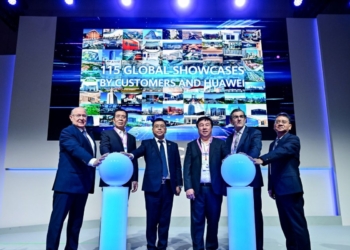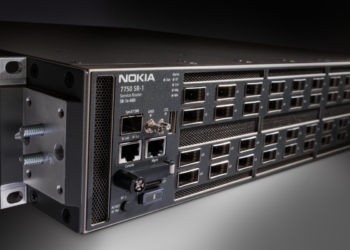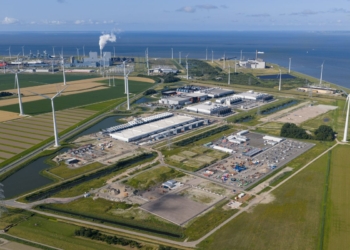Colocation’s role in an AI world
Author: Joe Peck

In this article, Mark Pestridge, Executive Vice President & General Manager, Telehouse Europe, explores colocation’s dual role in supporting today’s transformation and tomorrow’s artificial intelligence (AI):
Behind the curtain of AI
The proliferation of AI solutions is a source of headlines which can easily obscure the critical role of data centres as ever more workloads run in the background. Recent research by S&P Global Market Intelligence, commissioned by Telehouse, shines a light on what is going on behind the scenes. It reveals that 76% of AI workloads are hosted in the cloud or in data centres, including colocation facilities.
AI, however, is not the sole focus of every organisation. Many are undertaking technical transformations that data centres must be capable of supporting, while also providing infrastructure with the flexibility to scale for future AI integrations. This question of flexibility is becoming central to how colocation providers serve a growing market.
The growth of AI and its processing needs
The research shows between 16% and 20% of overall workloads are AI-related. While hyperscalers lead with 35% of these workloads, third-party colocation data centres hold a 10% share. Within this space, several factors are shaping buying decisions, including GPU-as-a-Service (18%), access to specialised cooling (15%), and GPU-based compute installation (13%).
One key issue is becoming increasingly important as AI workloads grow: effective cooling. The GPUs used in AI processing are only as reliable as the cooling systems that support them, which demands a more advanced set of cooling technologies to cope with the heat generated by their higher power densities. This brings liquid technology into play, as it requires less power than traditional air cooling, making it a more efficient, reliable method.
Liquid cooling may be essential for AI growth, but it also has more immediate gains for data centre operators. By enabling higher rack densities – some reaching up to 100KW – it can accommodate a wider range of power-hungry workloads within a smaller footprint. At the same time, its lower energy requirements help to reduce costs and improve PUE ratings. These efficiency gains contribute directly to the reduction of carbon footprints and boost attainment of environmental, social, and governmental (ESG) goals.
Cloud on-ramps for AI lift-off
As well as meeting present-day digital demands from customers, data centre operators must consider cloud on-ramps for AI workloads. More than 90% of companies view on-ramps as either critical or quite important to AI/ML architecture, with the potential for multiple AI-related functions. This includes moving data in and out of the cloud for training inferencing purposes, alongside the transportation of AI-related data for analysis.
Cloud on-ramps are also important for digital transformation strategies. As a direct, secure connection, they enable faster, more reliable access to cloud services from a data centre. Low-latency connectivity between business networks and other cloud services via a private connection is enabled by cloud exchanges with links to the leading cloud providers, such as Amazon Web Services and Microsoft Azure. If they provide access to cloud on-ramps and cloud exchanges, colocation services should be at the centre of distributed AI workloads that make use of public cloud services.
The value of consultancy and expertise
The research is also clear about the role of expertise in guiding the data centre choices for both transformation strategies and longer-term AI plans. A fifth of respondents (20%) cite AI/ML consulting services as the main differentiator when considering a colocation provider. This is especially true for healthcare and life sciences companies which value the availability of IT skills and expertise.
Remote and smart-hands services offered by leading data centre operators clearly have an important role in offering guidance on how organisations meet their goals. In colocation centres, smart-hands services make it easier to configure changes to equipment and to install new equipment.
Colocation has a central role
As AI workloads grow to power dramatic new use cases, colocation is expanding its critical support. It offers the infrastructure, connectivity, and expertise that organisations require to achieve their current targets and the requirements of the AI-shaped future. The combination of advanced cooling systems, direct cloud connectivity, and value-added services makes colocation fundamental to evolving workloads, whether focused on digital transformation or AI.
For more from Telehouse, click here.








